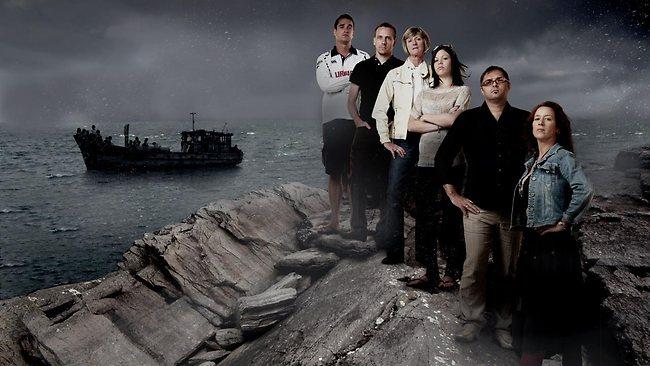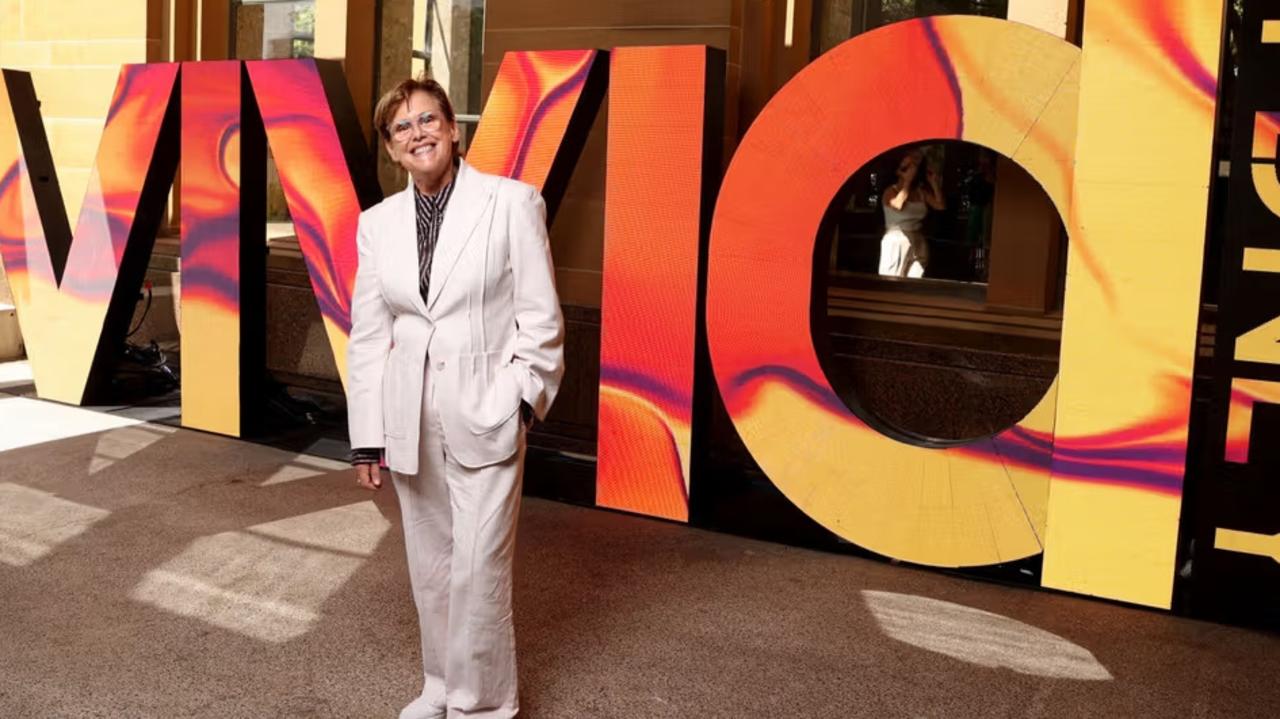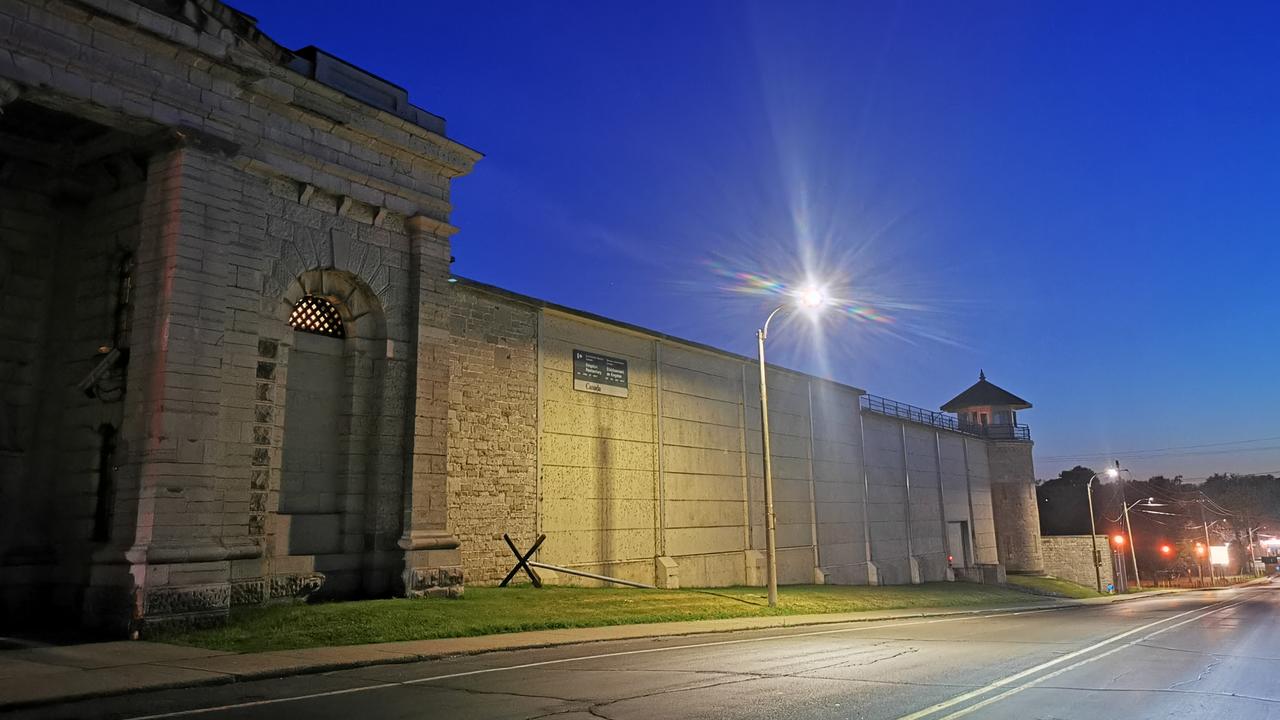Reality show participants walk a mile in the shoes of asylum-seekers
A CONFRONTING new SBS series brings Australians face to face with asylum-seekers on their own turf.

"ONE of the great challenges, I think, in modern TV, with so many choices and so many channels, is how to make important stuff interesting," director Ivan O'Mahoney is saying, and with some passion, too.
He's one of two highly experienced documentary film-makers -- the other is Rick McPhee -- who directed the television event Go Back to Where You Came From.
Produced by the Cordell Jigsaw Group and screening on three consecutive nights this week, it's one of the most ambitious factual series made in this country. It's still being edited frantically when O'Mahoney and I speak, and even though I don't have the entire series to watch I see enough grabs of each episode to get a sense of how effectively the format works.
"You have to face the fact that as a documentary filmmaker who wants to work in TV, you are up against shows like Packed to the Rafters, House and CSI that are a little easier for viewers to stay glued to, which is what they are designed to do," O'Mahoney says.
"Documentary filmmakers need to understand why people choose to watch these shows, rather than dismissing this element of competition. There are things that we can learn about presentation and about telling our stories."
Superbly photographed and edited, Go Back to Where You Came From is a series that deals with the politics of asylum and in some ways inevitably the politics of national identity, though it doesn't necessarily champion a more inclusive, more compassionate interest in the way the politics are being played out.
About 70 people applied to participate in the program, agreeing to challenge their preconceived notions about refugees and asylum-seekers by embarking on a sometimes dangerous, always confronting, 25-day journey.
The featured six -- Raye, Darren, Gleny, Adam, Roderick and Raquel -- range in age from 21 to 63 and come from across Australia. They differ in their political views, stridently in some cases, from opposing the detention of asylum-seekers to wanting to send all of them straight back.
"Australia should be Australia, just like Africa is Africa and Asia is Asia and America is America. It shouldn't be so multicultural," declares Raquel, 21. Raye, 63, who lives opposite the Inverbrackie detention centre in the Adelaide Hills is even tougher.
"When the boat crashed coming into Christmas Island I thought, 'Serve you bastards right,' " she says at the series start. "Come the right way and it wouldn't have happened."
Roderick, 29, is running for the vice-presidency of the federal Young Liberals and is afraid at the start of being perceived as a left-leaning bleeding heart. Darren, 42, a former military radio operator, is also a Liberal Party member, whose ancestors were in the first group of Muslim families to arrive in Australia in the 1800s as cameleers. While his family successfully integrated, he is convinced multiculturalism is a failure.
Adam, a 26-year-old lifeguard from Cronulla, also has zero tolerance for asylum-seekers arriving by boat. Only Gleny, a 39-year-old part-time schoolteacher and singer (she works as Gleny Rae Virus) is sympathetic, believing we could take more refugees. The casting is indicative of the way so many Australians are not supportive of a more sympathetic approach to asylum-seekers, preferring a hard line against unauthorised arrivals.
As every producer knows, there are only three rules about creating this kind of show: casting, casting and casting. This group of participants is wonderfully chosen and, as it turns out, they are somehow resilient enough to cope with what appears to be a terrible ordeal. During the journey they become fervently involved in the issues.
They are accompanied by a crew of about 16, including the two directors and guide David Corlett, the numbers shrinking and expanding depending on the circumstances. A case worker with refugees and asylum-seekers, Corlett is author of Following Them Home: The Fate of Returned Asylum Seekers. It's such an elegant idea for a series; kind of through-the-mirror TV.
Tracing in reverse the journeys that refugees have taken to reach Australia, the participants travel to some of the most desperate parts of the world, with no idea what is in store for them. Deprived of their wallets, phones and passports, they board a leaky refugee boat that almost sinks and are rescued mid-ocean.
They experience immigration raids in Malaysia, live in a Kenyan refugee camp and visit slums in Jordan before ultimately making it to the Democratic Republic of Congo and Iraq, protected by UN peacekeepers and the US military. Even if it doesn't change a single attitude, the series exposes the refugee reality of arbitrary arrest, harassment, despair, extortion and imprisonment.
O'Mahoney says the unedited interviews between "the punters" and the groups of refugees were often surprisingly frank and sometimes unsettling. They were not "produced" in the sense of being told what to say by the off-screen directors, which is the norm in these kind of shows.
"In fact, I expected to do more of that but they were so eager to learn and to hear, and to share their own views with the asylum-seekers. They wanted them to know what they felt about them," he says.
O'Mahoney and his colleagues have somehow engineered out of complex and intractable material a wonderfully entertaining and often compelling format, although no one seems quite certain what it is.
"I'm not sure we've figured it out, to be honest," O'Mahoney says of the style of presentation. "I wish I had an authoritative-sounding answer there." He determines eventually that the series is best described as a kind of blend between reality TV and observational documentary.
"The reality aspect is where you are very up-front about the way you are doing things that are constructed; where you deliberately take people out of their comfort zone, their normal lives, and send them on a journey," he says. "But once they are inserted, we hang back and we see what happens."
Like so many reality TV formats these days, it echoes other shows, benignly borrowing tropes and conventions, or "re-imagining" them, as producers like to say these days. There are touches of the durable old workhorse Survivor, Amazing Race and Nine's hit series In Their Footsteps, in which participants embarked on powerful personal journeys in the footsteps of a close ancestor's wartime experience.
It has something in common, too, with the beautifully produced and photographed six-part assault on Western consumerism, Blood, Sweat and Luxuries that screened recently on the ABC. That series examined the laborious and dangerous production of luxury goods in Africa.
Six young, self-absorbed British consumers swapped their comfortable lives for the mud huts and shanty towns of Asia to work alongside those who mine, manufacture, process and recycle luxury goods.
Go Back to Where You Came From is just as confronting, and it is obvious the producers worked diligently to bring the various sides of this acrimonious debate into one microcosm. They present a miniature body of ideas that can be observed in a small group of people willing to be wrangled into this kind of experience.
It's a fascinating social experiment, following and capturing a set of artificial situations, carefully modelled on real ones.
It's an extreme example of what is sometimes called "the life intervention" format of some reality shows. These programs mobilise various professional motivators and lifestyle experts to help us overcome obstacles in our personal, professional and domestic lives.
They entertainingly use different forms of self-management techniques, life-changing interventions or simply resolve specific problems, such as how to sell a house in a foreign country, how to lose weight and how to manage our children better. The notion of TV as social worker may be anathema to some but it provides great entertainment.
Go Back to Where You Came From is going to be engrossing TV as it unfolds. It is seemingly non-partisan and goes to air at a time neither of the two main Australian political parties can lay claim to a principled stand on the issue. All nuance has disappeared from the debate.
"Even those of the six who didn't change their positions came to appreciate that the discussion is not as simple as they had always thought," O'Mahoney says. "I don't want viewers to think that we want to manipulate them into being extremely welcoming of asylum-seekers or that we have a position that they are all bad and unwelcome."
As he suggests, if the one thing the series achieves is to make people realise there is a more complex discussion to be had, it will have done its job. But it won't be easy.
INSPECTOR George Gently returns this week with a feature film-length series that's tougher and darker than the earlier episodes. The stories are adapted for the screen by Peter Flannery (The Devil's Whore, Our Friends in the North) and Jimmy Gardner (This Life) from the Inspector Gently novels by Alan Hunter.
Martin Shaw, so good as the maverick judge in Justice John Deed, again stars as an incorruptible copper in 1960s Northumberland. The settings have shifted from the Norfolk of the novels but the texture of the Durham district is breathtaking.
While the city landscape is still grimly industrialised, the region has a rich haul of castles, the majesty of Hadrian's Wall and the green expanses of the Cheviot Hills and North Pennines. It's an area of outstanding natural beauty and a photographer's dream, with stone-walled meadows, upland dales and tumbling valleys.
But unlike, say Midsomer Murders, the show's take on its setting is as unsettling as the crimes the quietly resolute cop attempts to solve.
Recovering from the murder of his Italian wife, Isabella, the still grieving Gently was thrown into a maelstrom of murder and mayhem when he left London for the northeast of England at the show's birth. As he quickly discovers, the line between police and criminals is even more blurred than in the big city.
Each case pits old-fashioned prejudice and bigotry against the rapidly emerging reality of social change. And Gently, in his compassionate, deeply humane way, deals with issues surrounding the pill, legalised abortion and the sexual assault of young women. (She asked for it, didn't she?)
In the first episode of the new series he deals with family secrets when a young woman is found murdered in a sleepy coastal village. Possible pedophilia emerges in the investigation, which is thwarted by the intervention of a rogue tabloid reporter.
Meanwhile, Gently's hot-tempered young sidekick, DS Bacchus (Lee Ingleby), is having marriage problems and becomes jealous when he realises how close Gently has become to his estranged wife, Lisa (Melanie Clark Pullen), the chief commissioner's daughter. Ingleby is mesmerising as the thin-faced country cop, all angles and speediness and oily charm.
Shaw is as good as he has been in a long career, gruff and glowering. Against the background of a corrupt society, his code of decency stands out as a beacon of disinterested morality.
Inspector George Gently, Sunday, 8.30pm, ABC1
Go Back to Where You Came From, Tuesday, Wednesday and Thursday, 8.30pm, SBS One


